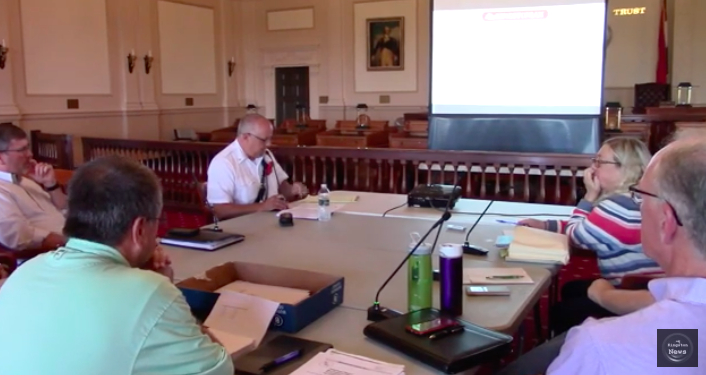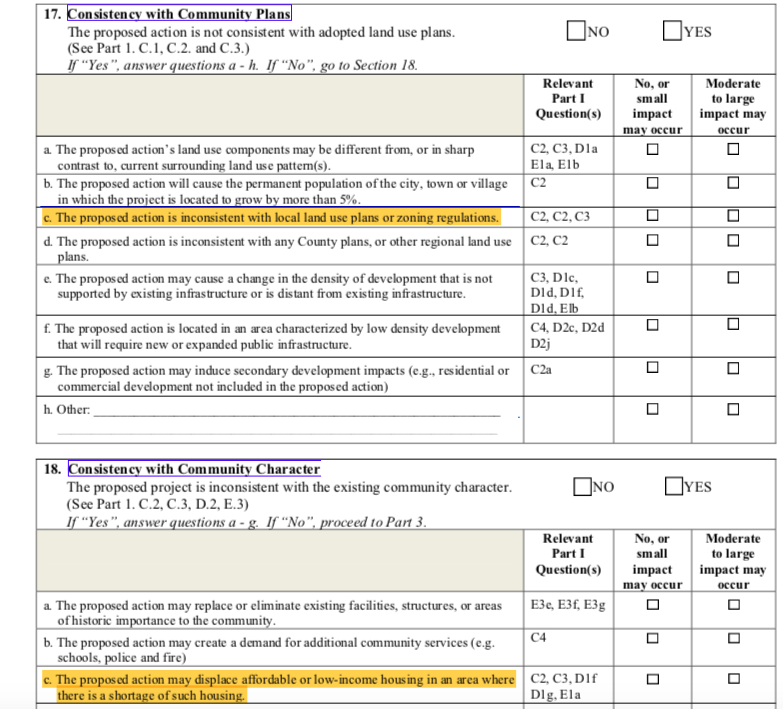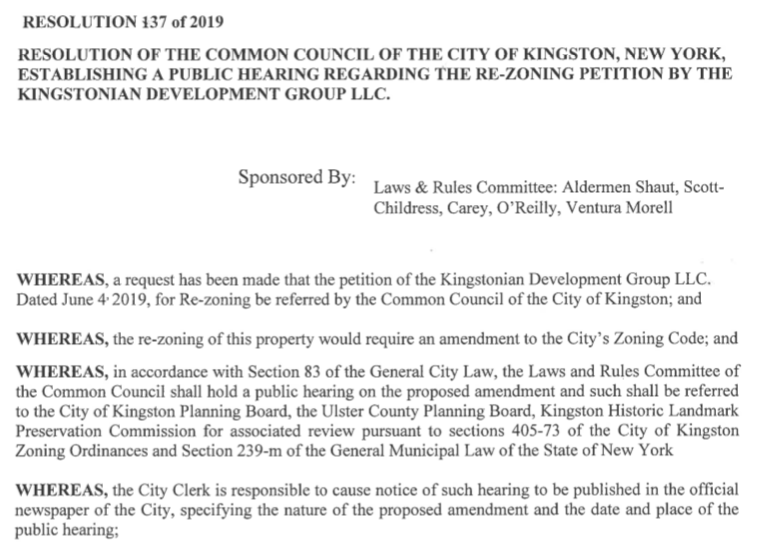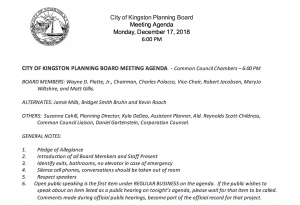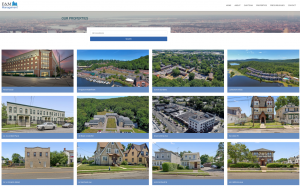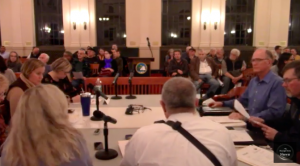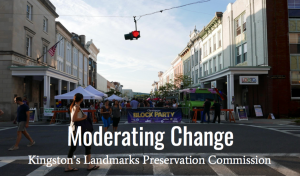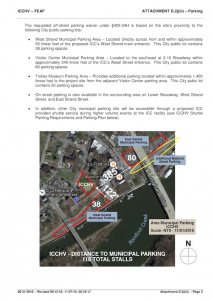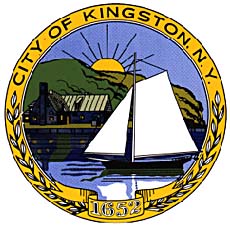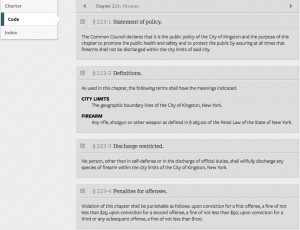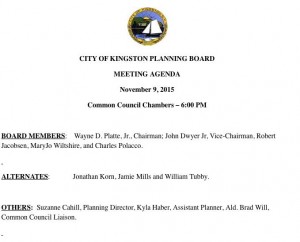
By Rebecca Martin
Imagine being jolted awake at 7:00 a.m. on a weekday by the sound of heavy machinery and the persistent, high-pitch truck backup alarms—not once, but week after week for months. This is the reality for at least one Midtown Kingston resident, who is dealing with the ongoing noise from new construction in their neighborhood. They report that construction often begins before the city’s legally allowed start time, disrupting early mornings and weekends. The noise ordinance specifies the maximum decibel levels allowed, yet construction regularly exceeds those limits on a daily, weekly, and monthly basis. Despite filing complaints with the Kingston Planning Department, contacting their Common Council representative, and calling the Kingston Police Department multiple times, the noise persists.
Under Kingston’s municipal code, construction is allowed to take place Monday through Friday, from 8:00 a.m. to 6:00 p.m., excluding holidays. If a developer or contractor wishes to work outside of those hours, they must apply for a special permit and demonstrate an “unreasonable hardship” that justifies the exception. This safeguard is meant to protect residents from excessive noise and disruption during times traditionally reserved for rest.
In this case, it appears that these special permits are being issued without requiring proof of hardship, and that 7:00 a.m. start times are regularly approved. This is happening despite a previous decision by the city’s Laws and Rules Committee, which, as we understand it, reviewed and declined a proposal to change the official start time to 7:00 a.m., maintaining the 8:00 a.m. start as a standard that best serves the interests of Kingston’s residents. (Minutes from the January 2018 meeting are not readily available on the City of Kingston’s website).
These claims point to a significant gap between what the ordinance requires and how it is being implemented. The result, the resident says, has been ongoing exposure to high-decibel construction noise for 55 or more hours per week, with limited opportunities for relief. They also report calling the Kingston Police Department on multiple occasions when work began before 8:00 a.m., and that in many instances, police intervened and stopped the work, suggesting that violations had, in fact, occurred.
This situation raises broader concerns about the city’s enforcement mechanisms. Is it appropriate for the police to be solely responsible for responding to construction noise violations? Officers already carry heavy workloads, and their presence may not be the most effective or proportional response to ongoing quality-of-life issues like this. There may be a need for additional oversight, accountability, or alternative avenues of enforcement within the Building Department or other city structures.
Importantly, the Planning Department and Planning Board must ensure that construction plans are reasonable and feasible within the allowed hours and decibel levels so that “emergencies” like excessive rain in the spring do not constitute a “hardship.” Permitting exceptions without scrutiny not only undermines the ordinance, it also places the burden on residents to prove that something is wrong.
It’s important to recognize that managing noise on construction sites—and adhering to the city’s noise ordinance hours—helps protect construction companies from fines, lawsuits, and reputational damage. The cost of doing business should include investments in site preparation and noise-reducing measures. While many construction companies worry about costs, staying compliant with noise regulations can prevent bigger problems down the road.
There is growing research on the psychological effects of chronic noise exposure, showing a strong correlation with increased stress, sleep disruption, anxiety, and even increased rates of violent crime. This isn’t just a matter of inconvenience—it’s a public health issue.
This experience mirrors other complaints we’ve heard in recent years and highlights the importance of transparency and accountability in how construction permits are managed. The core issue remains: residents have a right to quiet enjoyment of their homes, and if city departments are issuing permits that conflict with the law—or failing to require the documentation the law demands—residents deserve to know.
We’ve seen firsthand that individual residents can drive meaningful change when it comes to noise issues. In 2021, Kingston resident Lisa Darling confronted a different kind of disruption: the relentless sound of high-pitched backup alarms coming from a nearby NYS Department of Transportation (DOT) facility operating through the night. When she first raised the issue, she was told nothing could be done. But through persistence, collaboration with neighbors, and support from local and state officials, Darling succeeded in persuading the DOT to pilot—and ultimately adopt—quieter, OSHA-approved white noise alarms. Her advocacy didn’t just bring relief to her neighborhood; it led to a policy change affecting 60 DOT facilities statewide. Her story is a powerful reminder of what’s possible when residents speak up, stay engaged, and push for solutions through the right channels.
The point isn’t to stop construction or block development. It’s to ensure that progress doesn’t come at the expense of the people who already live here. Ordinances like Kingston’s construction noise rules exist to protect public health and community livability. If they are being ignored or circumvented, then residents have every right to ask why and to demand better.
If you are experiencing similar issues, for now, you can report noise violations by calling the Kingston Police Department’s non-emergency line at (845) 331-1671. You can also contact the City Planner’s office at (845) 334-3957 or email pl******@*********ny.gov. Finally, consider reaching out to your Common Council representative to share your concerns and request that the issue be addressed at the policy level.
As always, we encourage residents to engage with their local government, ask questions, and push for transparency. Your voice matters—and your peace of mind does, too.


